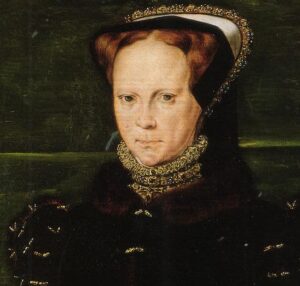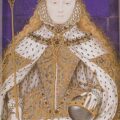
You can read all about her coronation at “The Coronation of Mary I” – and more about Mary in the following articles

You can read all about her coronation at “The Coronation of Mary I” – and more about Mary in the following articles
 1 October 1553 – The Coronation of Mary I
1 October 1553 – The Coronation of Mary I
 10 July 1553 – Lady Jane Grey Proclaimed Queen
10 July 1553 – Lady Jane Grey Proclaimed Queen
 19 July 1553 – Mary I Proclaimed Queen
19 July 1553 – Mary I Proclaimed Queen
 Mary I
Mary I
 19 July 1553 – Mary Proclaimed Queen in London
19 July 1553 – Mary Proclaimed Queen in London
 8 July 1553 – Mary Declares Herself Queen
8 July 1553 – Mary Declares Herself Queen
 17th November 1558 – Elizabeth I Becomes Queen
17th November 1558 – Elizabeth I Becomes Queen
 Edward VI and Mary I
Edward VI and Mary I
 25 July 1554 – The Marriage of Mary I and Philip of Spain
25 July 1554 – The Marriage of Mary I and Philip of Spain
 9th July 1553 – Mary Writes to the Privy Council and Lady Jane Grey is Informed that She is Queen
9th July 1553 – Mary Writes to the Privy Council and Lady Jane Grey is Informed that She is Queen
 14th October 1586 – Trial of Mary Queen of Scots
14th October 1586 – Trial of Mary Queen of Scots
 Edward VI is Crowned King – 20 February 1547
Edward VI is Crowned King – 20 February 1547
Copyright © 2025 The Elizabeth Files